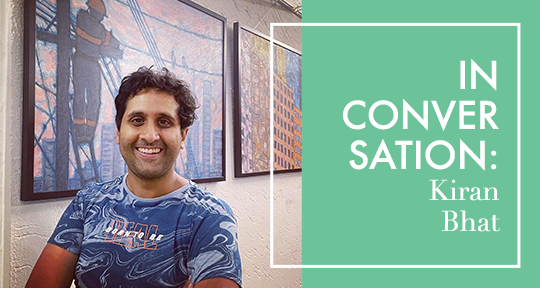Khiran Bhat is true to what he says he is: a “citizen of the world.” Among other things, he has authored poetry volumes in both Spanish and Mandarin, a short story collection in Portuguese, and a travel book in Kannada. He is also a speaker of Turkish, Indonesian, Hindi, Japanese, French, Arabic, and Russian, and has made homes from Madrid to Melbourne, from Cairo to Cuzco.
In this interview, I asked Bhat about writing across genres, self-translating from and into a myriad of languages, and being a writer who identifies as planetary, belonging to no nation—and thus, all nations at once.
Alton Melvar M Dapanas (AMMD): As a polyglot, a citizen of the world, and a writer “writing for the global,” are there authors (especially those writing in any of the twelve languages that you speak) whom you think were not translated well, and therefore deserve to be re-translated?
Kiran Bhat (KB): What an interesting question! I’m rarely asked about translation, and since I dabble in translation, I’m glad to see someone challenge me on a topic that speaks to this side of myself.
It’s a hard one to answer. I would pose that almost all books are badly translated because no one can truly capture what an author says in one language. Every work of translation, no matter how ‘faithful’ it aspires to be, is essentially an interpretation, and that interpretation is really a piece of fiction from the translator. Some people really want ‘authenticity,’ but when I read a translation, I just want something that compels me to keep reading (probably because I’m so aware of the ruse of it all).
For example, a lot of people prefer the Pevear and Volokhonsky translation of War and Peace, but I fell in love with the Constance Garnett translation. This might have been because it’s easy to find on the Internet and I was reading it on my computer while waiting on a ferry crossing Guyana and Suriname in 2012, but Garnett’s effortless storytelling style really made me fall in love with Pierre and Natasha. I can understand why technically Pevear and Volokhonsky are truer to Tolstoy’s sentences and paragraph structures, but I feel riveted when I read the Garnett version. I want to turn the pages and find out what’s going on, and I think that’s important as a reader: to get lost and immersed in a fictional world.


